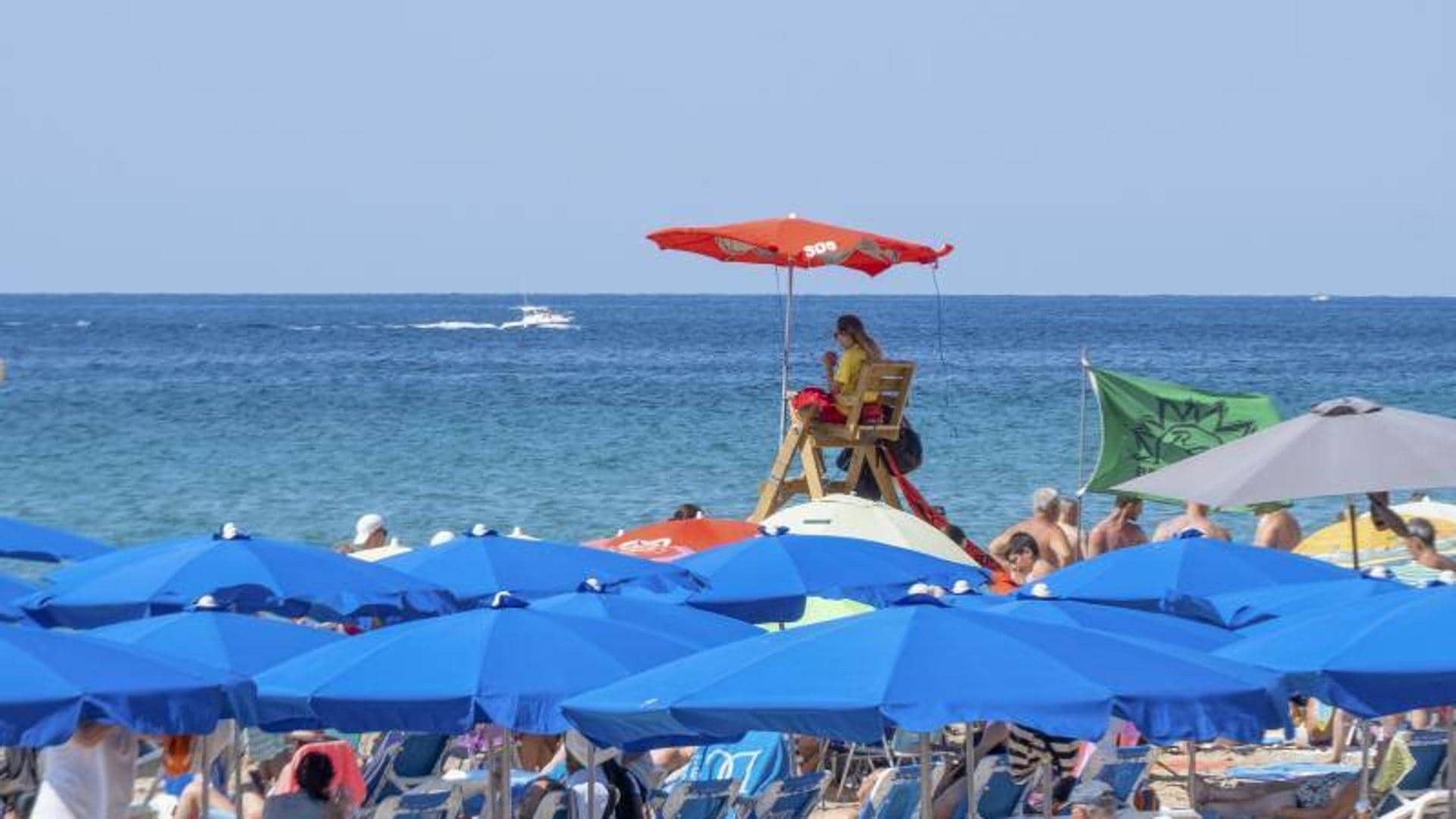

Sections
Highlight

Edurne Martínez
Madrid
Monday, 3 July 2023, 15:01
Spain is expecting to welcome more tourists than ever this summer despite prices being the highest on record.
Summer officially kicked off at the weekend, but after a year of constant price rises, costs have not let up, and the months of July and August could reach unprecedented levels.
Restaurants are raising prices due to inflation, while accommodation prices continue to rise, with hotels 20% more expensive than in the summer before the pandemic. Car and train costs are slightly cheaper due to the fall in fuel prices in one case and the arrival of rival rail companies, but air travel is expensive due to increased foreign demand.
It is shaping up to be the most expensive summer, but that won’t deter people from travelling. According to data, demand has increased by 35% compared to the record summer of 2019. The EMEA Summer Travel report prepared by Google and Rocket Digital revealed that searches have reached record highs in Spain, ranking it as the country with the second highest global demand behind only the United States.
It also confirms that tourist prices have risen considerably after the pandemic, with air fares around 10% more expensive than in 2019, accommodation 10-15% higher and rental cars 50% more expensive.
Inflation is having an impact because the average tourist will book shorter holidays to spend less, but will travel anyway. Travellers are also spending more time planning holidays to find the best options due to the rise in prices, according to Rocket Digital.
Joan Barceló, professor at OBS Business School, told SUR that people are willing to invest part of their savings and cut costs in other areas in order to travel. "The new post-pandemic traveller is more informed and more concerned about sustainability. They also want a flexible cancellation policy and payment methods," he said.
Accommodation
The most noticeable rise in tourism prices will be in accommodation. The average night in hotels, hostels, flats and campsites will cost 158 euros, according to Booking.com forecasts. In the case of hotels, prices are almost 10% above the records for the summer of 2019, according to data from the hotel employers' association (Cehat). The average rate per occupied room (ADR) closed May at 103 euros per day, 25% more than the same month before the pandemic.
Ramón Estalella, secretary general of Cehat, said last Frida,y 30 June, at the presentation of his report that although prices have risen by 9.7% since 2019, the CPI has risen by 14.3%, so that "the inflationary phenomenon is being shared between the businessman and the tourist".
The fact that prices have risen is a reality that Cayetano Soler, partner in charge of tourism at the consultancy firm PwC, blames on demand: "Prices are set by the market and the higher the demand, the higher the prices go up". In June, hotels had already sold 52% of their rooms for the summer, 2% above last year and 17% more than in 2019 during the same period, which means that occupancy will exceed 80% in July and August on average nationally.
Experts predict that it will be difficult to find last-minute bargains this year due to high occupancy rates and a change in the commercial strategies of hotel chains. This is the case of Barceló Hotels, where rates will rise this summer by around 7% compared to last year, and by 20% compared to the summer of 2019. Its CEO, Raúl González, said that demand is adapting perfectly to the prices being offered, and encouraged travellers to book in advance to get more competitive prices.
Restaurants
Eating meals out will also be expensive this summer due to historic increases in the price for raw materials. José Luis Yzuel, president of the employers' association of the hostelry sector (Hostelería de España) told SUR that despite the rises in their costs, they have not raised their prices very much. "In catering it is very difficult to raise prices because it is a very competitive sector because there are many establishments and sometimes you even know your customers by name," he said.
Yzuel acknowledged that with this high demand "temptations arise" to sell "a little more expensively", but that in most cases prices are remaining stable, with slight increases.
Transport
Getting to destinations will also be more expensive this summer than in 2019. Air fares are around 10% above pre-pandemic records. Although the Association of Airlines (ALA) said that there are increases compared to the years of the pandemic, fares remain stable compared to 2019. Its president, Javier Gándara, told SUR that bookings made ahead of time achieve more affordable prices and that the airlines' scheduled seats for this summer are already at levels higher than the records reached in 2019.
In addition to Madrid and Barcelona, Valencia will be the destination where the number of tourists arriving by train will grow the most , up 670% on last year. The demand is believed to be driven by the availability of Ouigo and Iryo tickets in addition to the AVE, which has brought down prices of high-speed trains.
Publicidad
Publicidad
Publicidad
Publicidad
Esta funcionalidad es exclusiva para suscriptores.
Reporta un error en esta noticia
Comentar es una ventaja exclusiva para registrados
¿Ya eres registrado?
Inicia sesiónNecesitas ser suscriptor para poder votar.